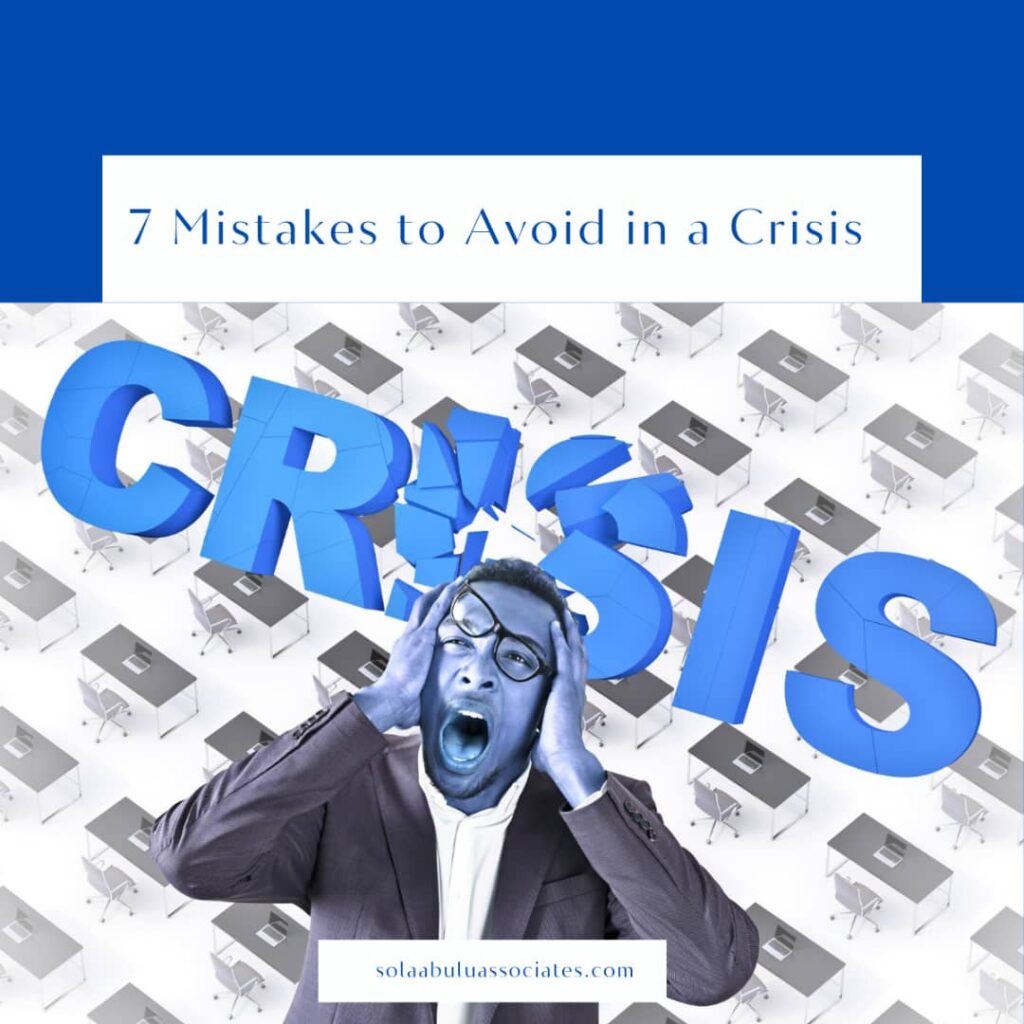7 Crisis Communication Mistakes to Avoid

Crises are caused by negative sentiments that can damage the reputation of businesses, organizations and institutions if not managed properly. In many instances, crises are unexpected but some times, they are a result of poorly managed issues.
Every organization or entity needs to have a well-trained communications team that is saddled with the responsibility of proactively developing a crisis communications plan. This article highlights 7 mistakes to avoid in a crisis.
- Blaming the victim: It is important that you don’t blame the victim when your brand is in the news for a negative sentiment. The organization or business involved should take responsibility for their negligence rather than victim blaming.
- Be defensive: Never be defensive especially when the crisis involves human lives. Brands must adopt a crisis communications response that shows care, control and commitment.
- Use aggressive language: Language and tone is important in communications. In crisis communication, it is wrong to adopt an aggressive language when addressing stakeholders. This is another mistake many brands make. A typical example is an incident that occurred in a Nigerian School where a 12 year old was tortured to death by bullies. The school management issued a cease and desist to the general public after denying the allegations. This approach never de-escalates a crisis as the communications lack care, control and commitment. It resulted in the state government ordering an indefinite closure of the school. What could have been properly managed to de-escalate wasn’t due to the mistake of using an aggressive language.
- Antagonize key stakeholders: This is very similar to the mistake of using an aggressive language.
- Take an insular perspective: Businesses and organizations that focus only on the internal perspective in a crisis have little understanding of the sentiments and will struggle in addressing it appropriately. It is better to look at the crisis from the external stakeholders’ perspectives to understand the concerns. This will not only guide the response but will be useful feedback for improvements.
- Ignore social media conversations: Social media is a very powerful tool that can contribute to the growth or damage of your reputation. One of its unique characteristics is its ability to help in the quick spread of news. Netizens also use social media as an advocacy tool. So, it is unwise to ignore conversations on social media. You will find this article on Reputation Management in the Digital Age very useful.
We shared different crisis communications case studies in our recorded webinar. Click here to watch
- Over-react, under respond or do nothing: Every feedback is important in crisis management. Therefore, communications professionals who are responsible for managing reputation must be well-trained to craft a well-tailored message that can manage crisis situations.
Click here to check out other online courses
Download our 2025 Training brochure here
………………………
Sola Abulu & Associates is a strategy and communications consulting and training firm committed to enabling businesses, brands and organizations to achieve their objectives through strategic communications, organizational effectiveness and reputation risk management
Chat with us for more information on our courses.
